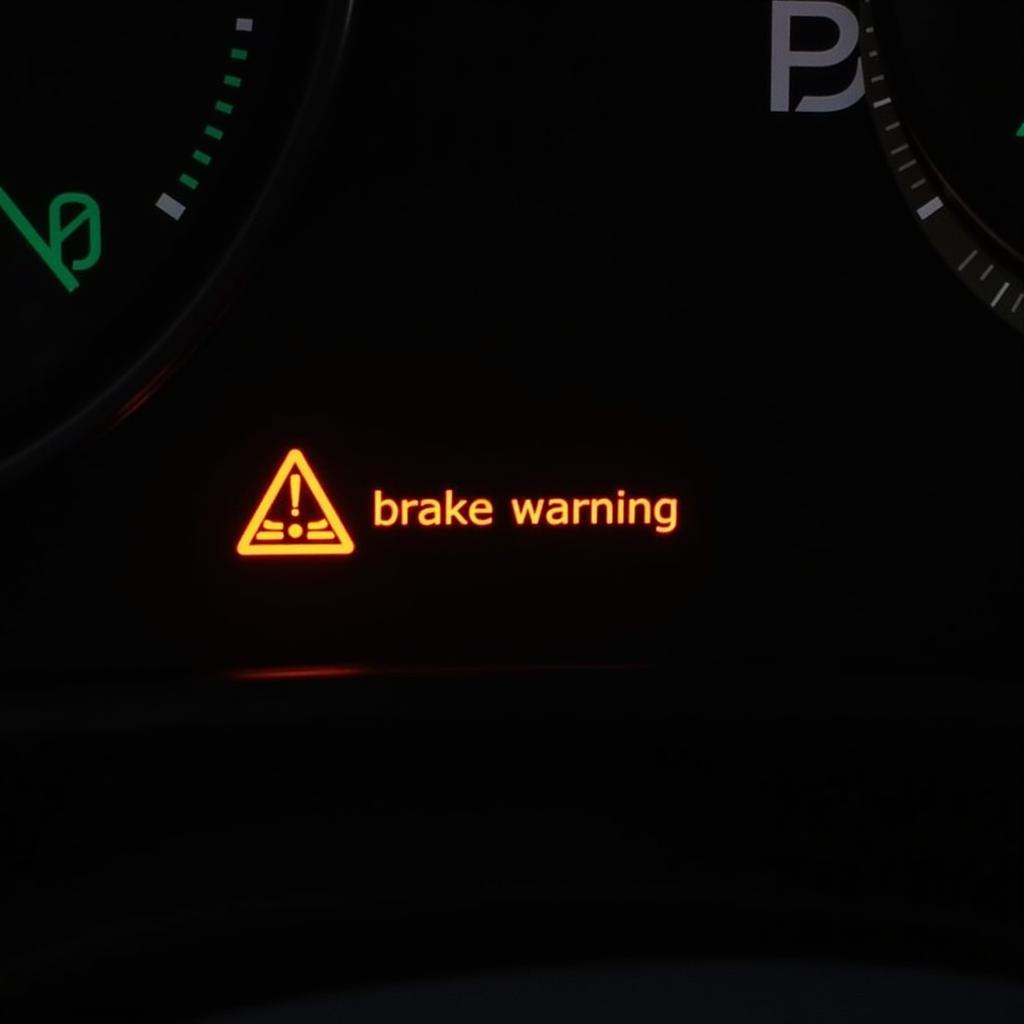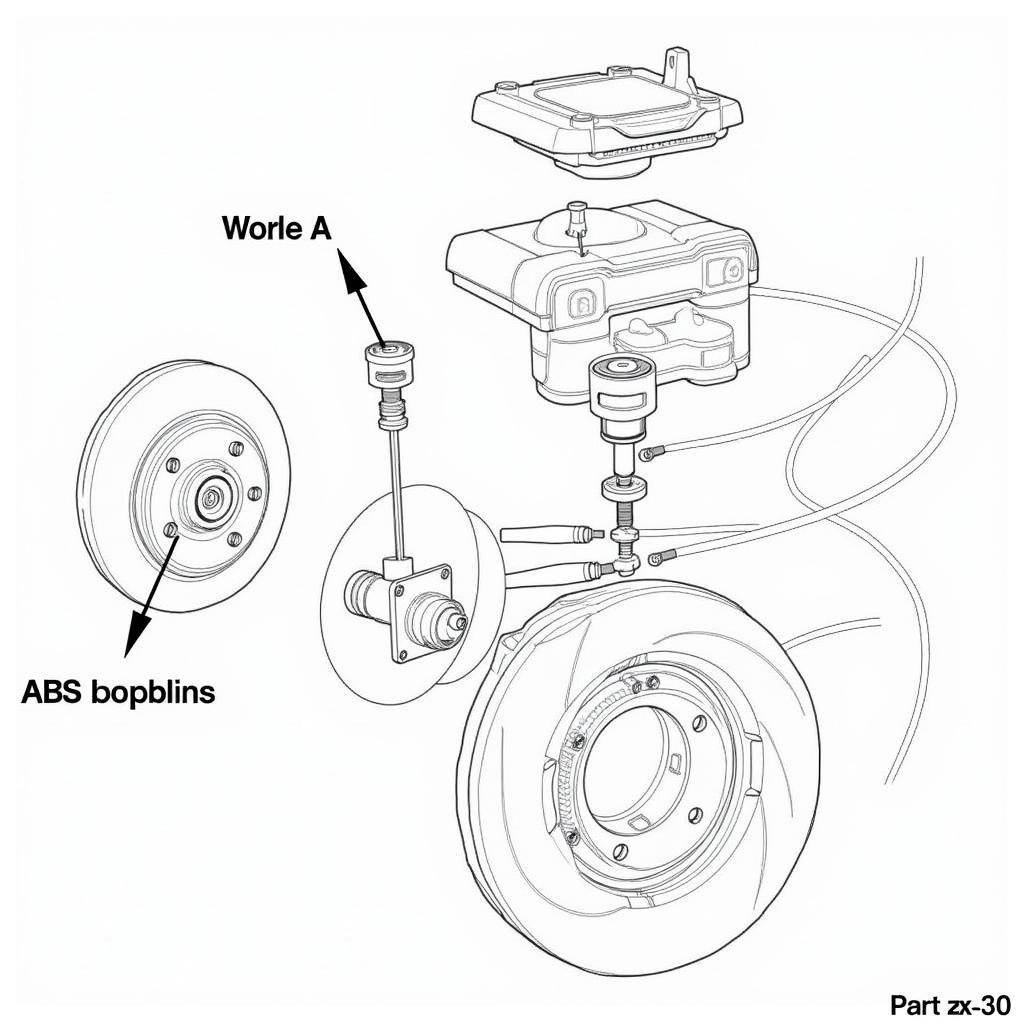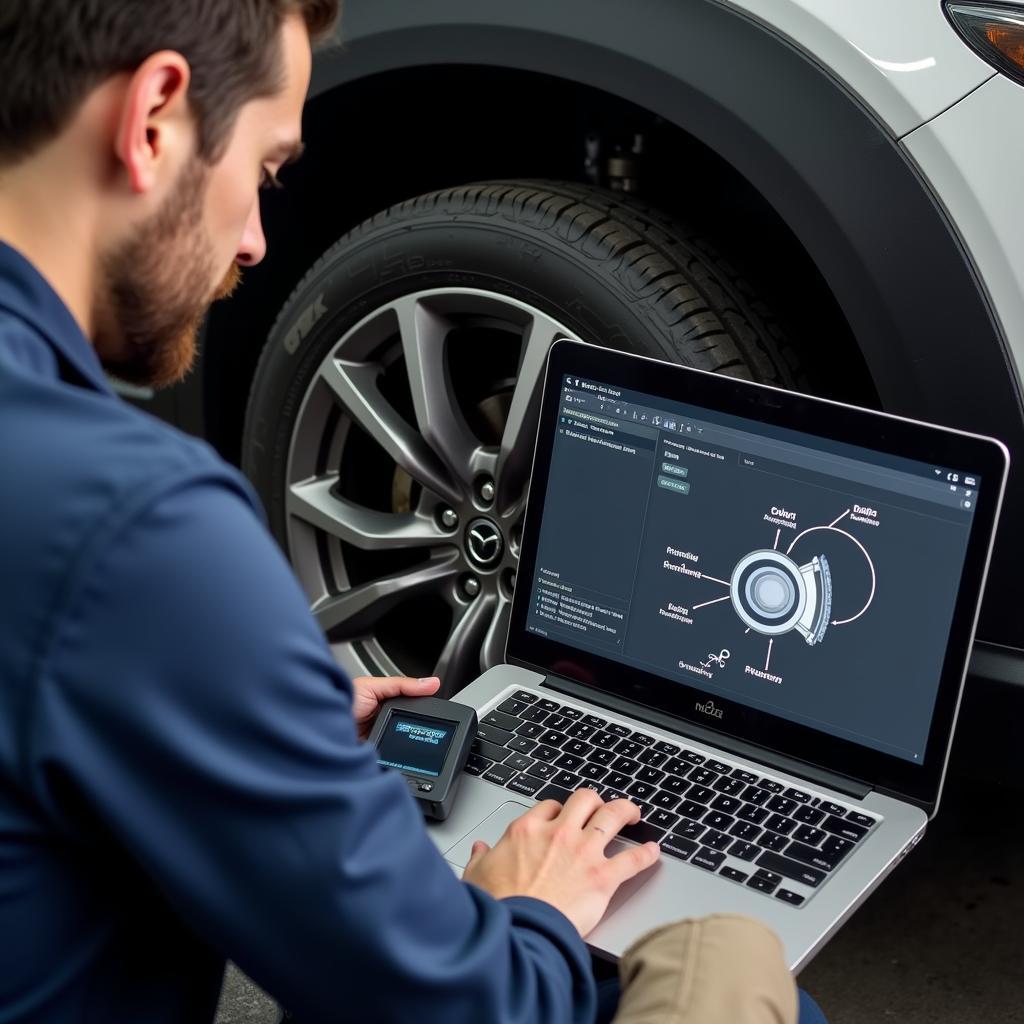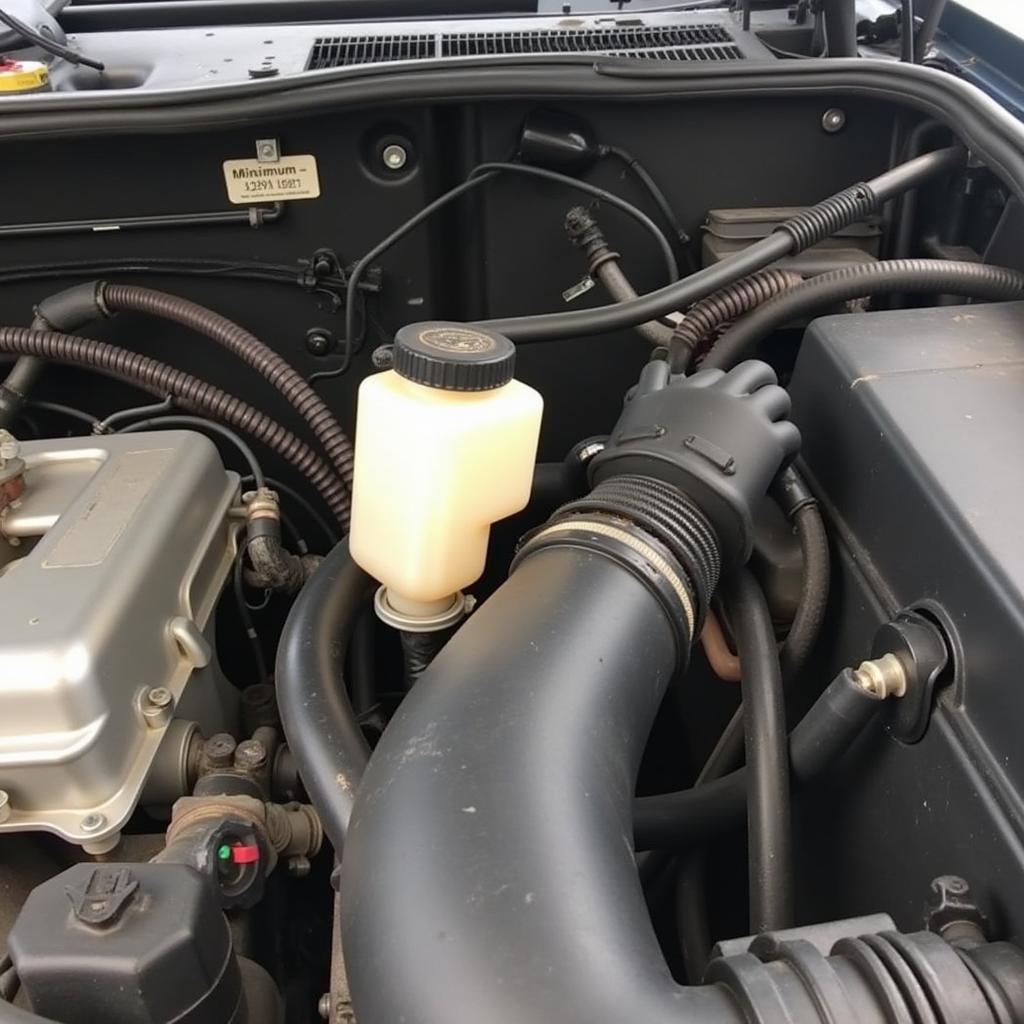The Mazda CX-30 is a popular compact SUV known for its sleek design and engaging driving experience. However, like any vehicle, it can experience issues, and one common concern is the dreaded brake warning light. This warning light can illuminate for various reasons, ranging from minor issues to potentially serious brake system problems. This article will delve into the possible causes of a Mazda CX-30 brake warning light and provide insights into diagnosing and addressing the underlying issue.
 Mazda CX-30 Dashboard with Brake Warning Light
Mazda CX-30 Dashboard with Brake Warning Light
Common Causes of a Mazda CX-30 Brake Warning Light
1. Worn Brake Pads
One of the most frequent culprits behind a brake warning light is worn brake pads. As you drive, the friction material on brake pads gradually wears down. When the pads reach a certain thinness, a sensor embedded within the pad will trigger the warning light, signaling it’s time for a replacement.
2. Low Brake Fluid Level
The hydraulic system responsible for your Mazda CX-30’s braking power relies on brake fluid to function correctly. If the fluid level drops too low, often due to a leak or worn brake components, the brake warning light will illuminate.
3. Faulty Brake Light Switch
While it may seem unrelated, a malfunctioning brake light switch can trigger the brake warning light in some vehicles, including the Mazda CX-30. This switch, located near the brake pedal, signals the brake lights to turn on when you press the brake. A faulty switch can disrupt this signaling, leading to the warning light.
4. ABS System Malfunction
Modern vehicles like the Mazda CX-30 are equipped with Anti-lock Braking Systems (ABS), designed to prevent wheel lockup during hard braking. The ABS system relies on sensors and a control module to function. If any component within this system malfunctions, it can trigger the brake warning light.
5. Electronic Parking Brake Issue
The electronic parking brake, a feature on many modern vehicles including the CX-30, can also be a source of brake warning lights. Issues with the parking brake system, such as a sensor malfunction or engagement problems, can trigger the warning.
 Components of a Mazda CX-30 Brake System
Components of a Mazda CX-30 Brake System
Diagnosing and Addressing the Issue
“Ignoring a brake warning light is never a good idea,” warns John Miller, a certified automotive technician with over 20 years of experience. “Even seemingly minor issues can escalate into serious safety hazards if left unaddressed.”
1. Check Brake Fluid Level
If the brake warning light comes on, a simple first step is to check the brake fluid level in the reservoir under the hood. If the level is low, it’s crucial to add the correct type of brake fluid for your Mazda CX-30. However, simply adding fluid without addressing the root cause, such as a leak, is not a solution.
2. Inspect Brake Pads
Visually inspecting the brake pads can provide valuable information about their condition. If you’re comfortable with basic car maintenance, you can remove a wheel and check the pad thickness. If the pads appear significantly worn, it’s time for a replacement.
3. Consult a Qualified Mechanic
For anything beyond basic checks, it’s essential to consult a qualified mechanic, especially if you suspect issues with the ABS system, electronic parking brake, or other complex components. Attempting to diagnose or repair these systems without the proper knowledge and tools can be dangerous.
Remote Diagnostics and Software Solutions
In some cases, particularly with electronic systems, remote diagnostics and software solutions can be employed to identify and resolve brake warning light issues. Specialized software can interface with your Mazda CX-30’s onboard computer to read diagnostic codes and pinpoint the source of the problem.
 Remote Diagnostics Being Performed on a Mazda CX-30
Remote Diagnostics Being Performed on a Mazda CX-30
Conclusion
A brake warning light in your Mazda CX-30 should never be ignored. While some causes, such as worn brake pads, are relatively minor, others can signal more significant issues. By understanding the potential causes and taking appropriate action, whether through basic checks, consulting a mechanic, or exploring remote diagnostics, you can ensure the safety and reliability of your Mazda CX-30’s braking system.

